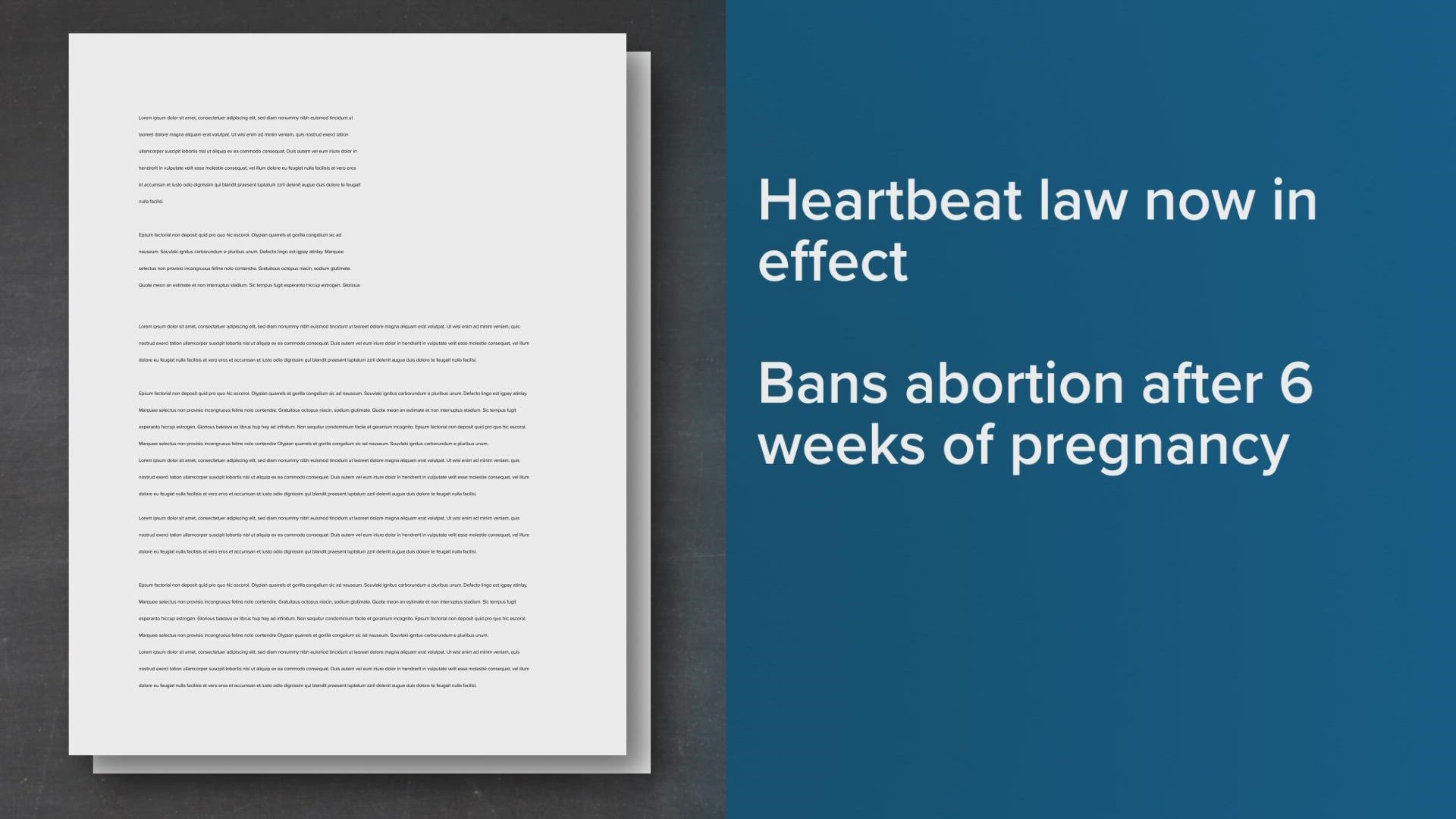KNOXVILLE, Tenn. — On June 24, 2022, the conservative-majority U.S. Supreme Court decided to overturn the 1973 ruling that guaranteed people access to abortion treatments across the country — Roe v. Wade.
A draft opinion, written by Justice Samuel Alito, was leaked on the evening of May 2.
That draft opinion argued that the right to abortion treatment access was not a "substantive due process liberty," which the 14th Amendment guarantees.
Tennessee is one of many states that have new laws that automatically go into effect preventing abortion treatments after Roe v. Wade is overruled. It also still has laws on the books from before the original ruling was handed down in 1973.
It effectively charges abortion treatment providers with a Class C felony if they give someone an abortion treatment. It also orders licensing boards to remove their medical license.
The state legislature passed the "Human Life Protection Act" in 2019, which would make providing abortion treatments a felony in the state. Since it would be a felony, people who give abortion treatments could lose voting rights and face several other consequences, including fines or prison time.
It also specifically does not try to punish women who receive abortion treatments. It allows abortion treatments if the mother's life would be at risk, but specifically excludes cases where a provider treats someone by giving them an abortion because they could attempt to kill themselves. Abortions in those cases would be illegal.
The law was expected to go into effect 30 days after Roe v. Wade was overruled. It was expected to start on Sunday, July 24. Clinics that provide abortion treatments could stop providing them before that date, to protect themselves from possible criminal charges.
The office of the Attorney General later clarified that the trigger law would go into effect 30 days after Attorney General Herbert Slatery III notifies the Tennessee Code Commission that the Supreme Court's judgment was issued. The official judgment is not exactly the same as the opinion.
His office said that they expect the judgment to be handed down no later than mid-July, which would make the "Human Life Protection Act" go into effect in August.
The law is also different from the state's "Heartbeat Bill" which creates additional restrictions on abortion treatments. That law went into effect Tuesday and makes abortion treatments illegal 6 weeks after gestational age if a fetus has cardiac activity and outright bans treatments after 8 weeks of gestational age.
A bill preventing abortion treatments from being sent through the mail in Tennessee passed the legislature and was signed by Governor Bill Lee into law.
In Knoxville, a Planned Parenthood clinic that gave a variety of treatments also burned down on New Year's Eve of 2021. Authorities ruled it arson, but no suspect was identified.
Leaders said they were working with the design team to create a new building after their previous building was entirely destroyed.
"Patients in East Tennessee will continue to need us whether abortion is legal or not for many other services," Ashley Coffield previously said, the Planned Parenthood of Tennessee and North Mississippi CEO. "And abortion patients will need us for information, resources and support once it is illegal in Tennessee."
Experts also said rights like gay marriage, interracial marriage and access to contraception could be at stake. They were also considered "substantive due process liberties."
"Everything is at stake," Josie Russell previously said, the founder of the Appalachian LGBT Chamber of Commerce. "If you are not part of a certain political party, or a political ideology, or a certain class, or a certain race, or a certain religion — it is all fair game at this point."
Research from the Guttmacher Institute estimates one in four women will get an abortion by the time they turn 45 years old.

